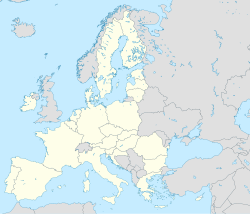| Country | National Coordination Center (NCC) | NCC website |
|---|
 Austria Austria | Federal Chancellery of Austria in cooperation with the Austrian Research Promotion Agency | https://www.ncc.gv.at |
 Belgium Belgium | Center for Cybersecurity Belgium (CCB) | ccb.belgium.be |
 Bulgaria Bulgaria | Ministry of Electronic Governance | egov.bg |
 Cyprus Cyprus | Digital Security Authority (DSA) | dsa.cy |
 Czech Republic Czech Republic | National Cyber and Information Security Agency | nukib.gov.cz |
 Denmark Denmark | The Danish Business Authority | danishbusinessauthority.dk |
 Estonia Estonia | Estonian Information System Authority | ria.ee |
 Finland Finland | Finnish Transport and Communications Agency Traficom's National Cyber Security Center (NCSC-FI) | traficom.fi |
 France France | National Agency for Information Systems Security (ANSSI) | cyber.gouv.fr |
 Germany Germany | National Coordination Center for Cybersecurity ( NKCS ) – Federal Office for Information Security (BSI) | nkcs.bund.de |
 Greece Greece | National Cybersecurity Authority of Greece | cyber.gov.gr |
 Iceland Iceland | Eyvör - National Coordination Centre of Iceland (NCC-IS) | government.is/topics/telecommunications/ncc-is/ |
 Ireland Ireland | National Cyber Security Centre (NCSC) | ncsc.gov.ie |
 Italy Italy | Agency for national cybersecurity (ACN) | acn.gov.it |
 Latvia Latvia | Ministry of Defence | mod.gov.lv |
 Lithuania Lithuania | National Coordination Center, Ministry of National Defense | kam.lt/en/national-coordination-center |
 Luxembourg Luxembourg | Luxembourg Cybersecurity Coordination Centre | securitymadein.lu/agency/ncc |
 Malta Malta | Malta Information Technology Agency | mita.gov.mt |
 Netherlands Netherlands | The Netherlands Enterprise Agency (RVO) | rvo.nl |
 Norway Norway | Norwegian National Coordination Centre for Research and Innovation on Cybersecurity (NCC-NO) | ncc-no.no |
 Poland Poland | National Cybersecurity Coordination Center Unit in the Chancellery of the Prime Minister | cybersecurity-centre.europa.eu/nccs_en |
 Romania Romania | Centrul Național de Coordonare | ncc.gov.ro/1/centrul-national-de-coordonare |
 Slovakia Slovakia | Cyber Security Competence and Certification Center (KCCKB) | cybercompetence.sk |
 Slovenia Slovenia | Office of the Government of the Republic of Slovenia for Information Security | uiv.gov.si/ncc |
 Spain Spain | The National Cybersecurity Institute (INCIBE) | incibe.es |
 Sweden Sweden | Swedish Civil Contingencies Agency | msb.se |

